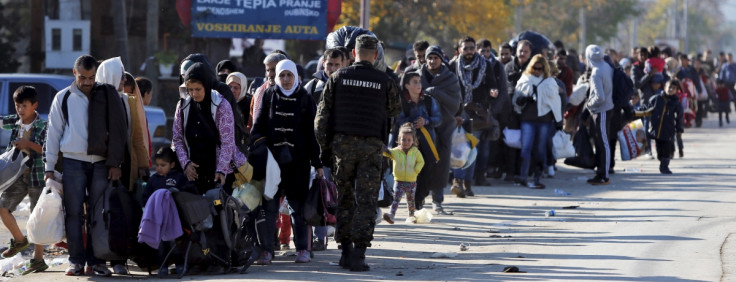Migrant crisis: Germany to speed up repatriations as migrant count nears million mark

As Germany draws closer to the million-migrant mark, efforts will be invested in speeding up the repatriations of rejected asylum seekers, it was revealed on 5 November. Present EU forecasts signal more migrant arrivals in 2016.
Earlier, German Chancellor Angela Merkel determined that economic migrants from countries outside war-torn regions should be sent back to their country within three weeks. "We took a good and important step forward," said Merkel.
Additional "reception centres" have also been planned upon arrival to cater for asylum seekers who have less chance of being given refuge to enable a speedy repatriation. An estimated three million migrants are predicted to reach Europe by 2017.
Greece is also expected to see a rise in the number of migrants with 600,000 more migrants estimated to cross over from Turkey over the next four months. Referring to the 3,400 deaths that have taken place in the Mediterranean migrant shipwrecks in 2015, Greek Prime Minister Alexis Tsipras said, reported France24 News: "[Migrant deaths are] a crime ... which must be stopped ... no one has to risk losing their life in the cold waters of the Aegean."
Meanwhile, Greece's interior ministry said on 5 November that most of the migrants come from war-torn regions of Syria, Iraq and Afghanistan. Others that come from "safe origin" Balkans states, like Albania and Kosovo, have seen firmer acceptance in Berlin.
"Each country has chosen [its] policy on refugees," said Denmark's foreign minister Kristian Jensen. "They have chosen theirs, and they must now handle it whichever way they want." Sweden has reportedly taken more migrants' than its quota and has urged other counties this week to do the same.
Meanwhile, aid agencies were found to be making last-minute appeals for money as refugees prepare for the cold winter ahead. "The international multilateral humanitarian community, even when combining all its resources, is no longer able to provide the core protection and basic life-saving assistance," said Antonio Guterres, the UN High Commissioner for Refugees. "We are starting to see what happens as a result of that."
© Copyright IBTimes 2025. All rights reserved.






















